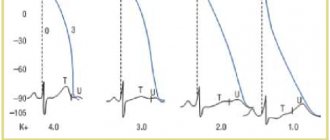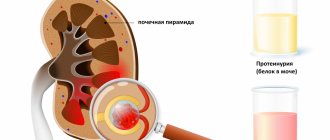Why do we need magnesium? There are really a lot of benefits from it. It helps restore a weakened nervous system, together with calcium and phosphorus, strengthens bone tissue, participates in the transport of glucose from the blood to cells, ensures the exchange of amino acids, and is necessary for the health of the cardiovascular system and reliable protection against urolithiasis.
In this article we will tell you why magnesium is needed in the human body, what is the daily need for it and the benefits of this macronutrient, what foods contain it, and why a deficiency of this universal mineral is dangerous.
For peace of mind and good health: Mg functions
Think about it, have you ever experienced:
- Anxiety, causeless irritation.
- Apathy, lethargy, fatigue.
- Loss of strength, decreased performance.
- Feeling of a lump in the throat that cannot be swallowed.
- Feeling of spasm, suffocation in the neck.
- Cardiopalmus.
- Convulsive states and tics.
- Sleep disorders, headaches.
These unpleasant symptoms occur in every second city resident. The problem is that they do not go away on their own and continue to haunt us until we establish the cause of their appearance. And it lies in the deficiency of a substance called magnesium. It is the lack of this mineral that leads to an exhausting feeling of chronic fatigue, frequent mood swings, and stress that seems to have no end.
Why does the body need magnesium and what is its effect on our health? As you can see, it is very large. He not only literally “guides” our nervous system, but also:
- Normalizes the functioning of the genitourinary system.
- Prevents the development of urolithiasis.
- Helps reduce blood cholesterol levels.
- Reduces symptoms of premenstrual syndrome and menopause.
- Plays an important role in protein synthesis.
Women especially need this element. They are more sensitive to its lack, they feel it more acutely. And the concentration of Mg in the female body is much higher than in the male body. Why did nature order it this way and not otherwise? Experts see a connection in the fact that the substance, which saves from overwork and stress, also takes a direct part in the birth of children and their intrauterine development.
Therefore, it is especially important for the expectant mother to monitor the level of the beneficial element and consult a doctor if the described symptoms appear. Most often, the magnesium content in the blood differs from the norm during periods associated with sudden changes in hormonal levels:
- Puberty.
- Pregnancy.
- Climax.
Mg levels may also be affected by oral contraceptive use. It has been proven that in 40% of women who took OCs, a lack of the substance began to appear within 3 months after starting to take the drugs.
Daily requirement
The daily requirement of magnesium directly depends on the gender, age and physiological state of a person.
The daily requirement is:
- for newborns up to 5 months – 30 – 50 milligrams;
- for infants from 6 months to 1 year – 70 milligrams;
- for children under 3 years old – 100 milligrams;
- for children from 4 to 7 years old – 150 – 170 milligrams;
- for schoolchildren from 9 to 13 years old – 250 milligrams;
- for young people under 30 years old – 310 – 350 milligrams;
- for adults – 400 milligrams;
- during pregnancy and lactation – 450 – 700 milligrams.
The need for magnesium increases with:
- stress;
- protein diet;
- pregnancy, breastfeeding;
- formation of new tissues (in children, bodybuilders);
- postoperative period;
- alcohol abuse;
- taking diuretics, laxatives, estrogens, hormonal contraceptives.
In addition, it is advisable for women during menopause to consume magnesium food (450 – 500 milligrams) in order to mitigate menopausal symptoms and reduce nervous excitability.
Why is magnesium prescribed during pregnancy?
During this period, it is necessary to constantly monitor the level of an important macronutrient. If the indicator is normal, gestation will proceed safely, as will the development of the placenta. In addition, cramps will disappear and resistance to stressful situations will increase.
Mg takes part in the synthesis of proteins and the formation of the baby’s nervous system. Without it, there can be no normal development of the fetus. And the most dangerous thing: insufficient intake of this substance from food, its deficiency, can be associated with two conditions that pose a direct threat to the life of the mother and child: preeclampsia and eclampsia.
We will talk about the main sources of magnesium in food a little later, but for now we will try to find an answer to the question: why are people of the 21st century so lacking in this important substance?
Why is it needed?
Magnesium is found in the blood and tissues; its presence is important for the normal functioning of the brain, heart, kidneys, liver, and all muscles; it is also part of bones and tooth enamel. In addition, it is important for:
- Digestion, because is part of digestive enzymes and helps to better digest food.
- Formation and strengthening of bones, as it helps to better absorb calcium and also promotes the production of vitamin D.
- Better absorption of B vitamins and zinc.
- Normalizes the functioning of the nervous system, reducing stress and fatigue, and improves sleep.
Magnesium deficiency can cause increased anxiety, nervousness, panic attacks, insomnia, decreased concentration, and memory impairment.
- It is actively used to treat headaches, migraines, depression and PMS.
- It is one of the necessary medications for frequent constipation.
- Stimulates the functioning of the gall bladder and normalizes the acidity of gastric juice.
- Important for the prevention of diabetes, as it promotes the production of insulin and the absorption of glucose.
- Regulates cholesterol levels, which means it helps prevent the occurrence of atherosclerosis.
- Important for the cardiovascular system, normalizing blood pressure and pulse, reducing the risk of blood clots.
- During pregnancy, it is necessary for the formation of the placenta, and is also important for the development of all organs and the central nervous system of the fetus.
As you can see, this element is extremely important for the normal functioning of the entire human body, since it is involved in absolutely all processes. Now you are probably eager to find out where magnesium is found, in what foods, the table below will give you an understanding of the whole picture.
But first you need to find out how much magnesium you need to eat per day.
Causes of Mg deficiency
Previously, people did not control the amount of macronutrients they received from food - there was simply no need for this. However, with the development of the food industry, it became less and less. This is associated with the peculiarities of processing vegetables and fruits, and the disadvantages of industrial cultivation using all kinds of chemicals and fertilizers.
Over the past 50 years, the amount of Mg in food products has decreased significantly: in vegetables it has decreased by 24%, in juicy fruits by 17%, and meat has lost 26%.
In 1995, magnesium deficiency in the body was recognized as a pathology. And now this important macronutrient is practically not found in the diet of modern people: we have switched to fast food and refined foods. These examples of malnutrition not only do not contribute in any way to replenishing the lack of a useful substance, but also provoke the development of deficiency, increasing the excretion of Mg.
Taking medications
We looked at magnesium in detail, what foods contain it, the table above gives you an idea of this. But what to do if the symptoms of deficiency are obvious and it is not possible to cope with them only by changes in the menu?
In this case, biological supplements and vitamins will become relevant.
Attention! Taking any medications is possible only after consultation with your doctor. This article is not medical in nature, but only introduces you to possible options.
There are such forms of Mg:
- Magnesium citrate - has an average absorption rate, but gives a good sedative effect.
- Malate is suitable for athletes because it relieves soreness after training.
- Threonate is relevant for increased mental stress and cognitive impairment (indicated for students, retirees, and Alzheimer's patients).
- Oxide - only 5% is absorbed, which is quite enough for a laxative effect.
- Glycinate has good bioavailability, is indicated for increased anxiety, panic attacks, and has no laxative effects.
- Magnesium oil is convenient for use in the form of a solution; it can also be used to massage the head and temporal area for migraines. As a bonus there will be stimulation of hair growth.
- Mineral water containing magnesium. This drink not only saturates the body with the necessary element, but also stimulates the activity of liver cells to produce bile.
Magnesium preparations, other vitamins for children and adults, nutritional supplements, as well as organic cosmetics and care products can be found on iHerb.com.
10% discount on iHerb
It is necessary to take into account the fact that Mg is better absorbed in the first half of the day, but you can divide the intake into the morning and evening, especially if you have difficulty falling asleep.
How our health suffers from magnesium deficiency
Imagine: all we need is just one tablespoon of an essential macronutrient. This is the amount it is found in our body. As a reminder, we cannot synthesize this component. It comes exclusively from food or with special medications.
A decrease in Mg levels can lead to heart rhythm disturbances, insomnia, causeless melancholy, fatigue, weakness, and convulsions. Long-term deficiency can be associated with a number of diseases. Among them:
- high blood pressure (hypertension);
- the presence of malignant neoplasms;
- diabetes;
- stroke and heart attack.
We have already described the symptoms of magnesium deficiency in the body. In children, this condition contributes to the development of autism, attention deficit hyperactivity disorder, and dyslexia.
The consequences of Mg deficiency can be unpredictable. This includes the risk of coronary heart disease, which ceases to receive the element necessary for normal functioning in full, and the development of schizophrenia, generalized anxiety, and other mental disorders.
The effect exerted by the element is great and is aimed at completely different systems. Forgetting about it, we risk being left alone with many serious diseases:
- Impaired cerebral circulation.
- Reduced resistance to infections.
- Oncopathologies.
- Atherosclerosis of blood vessels.
We looked at the role of magnesium in the human body, its main functions, symptoms of deficiency - signs that are found in most modern people. The lack of this substance leads to the fact that we cannot resist stress, our immunity weakens, and we do not have enough strength to work. Maybe you just need to reconsider your diet? Experts say: this is one of the surest ways to get rid of fatigue, apathy, cramps, rapid heartbeat and suffocation.
But there is also a problem diametrically opposite to the one we described. It is associated with excess of the norm and manifests itself with a sharp increase in the level of Mg in the blood.
Foods rich in magnesium
The mineral is supplied to the body together with food and hard water.
To eliminate chronic hypomagnesemia, medications and supplements are used, the main active ingredient of which is the missing element. In regions with soft tap water, the daily need for the compound is met with plant products. Table No. 1 “Natural sources of magnesium”
| Product name | Magnesium content per 100 grams of product, milligrams |
| Pumpkin seeds (raw) | 530 |
| Wheat bran | 450 |
| Cocoa 20% | 440 |
| Sesame seeds | 350 – 450 |
| Hazelnuts | 315 |
| Cashew (raw) | 270 – 290 |
| Almonds (roasted) | 260 |
| Pine nuts (shelled) | 245 |
| Wheat sprouts (unprocessed) | 240 |
| Buckwheat (fresh) | 230 |
| Watermelon (no nitrates) | 224 |
| Corn flakes (whole) | 214 |
| Peanut | 180 |
| Hazelnut | 175 |
| Sea kale | 170 |
| Oat flakes (whole) | 130 |
| Sunflower seeds, peas | 125 – 129 |
| Rosehip (dried) | 120 |
| Walnut | 90 – 100 |
| Dates (dried, unprocessed) | 85 |
| Spinach (fresh) | 80 |
| Dutch cheese | 50 – 60 |
| Boiled buckwheat | 50 |
| Pearl barley, millet, barley porridge | 45 |
| Beans | 45 – 100 |
| Dried apricots, prunes (unprocessed) | 45 – 50 |
| Rye bread | 40 |
| Lentils (boiled) | 35 |
| Russian cheese | 30 – 40 |
| Green peas (fresh) | 30 |
Remember, when cooking, soaking or peeling foods, 30–60% of the beneficial compound is lost.
Excess magnesium in the body: symptoms
This condition manifests itself as follows:
- Drowsiness and lethargy occur.
- Muscle weakness appears.
- Coordination is impaired.
- Another common symptom is dry skin and mucous membranes.
- The skin becomes hot to the touch, it seems that the temperature has risen.
- Diarrhea and lightheadedness may begin, leading to nausea.
All of these symptoms indicate an excess of magnesium in the body. This is dangerous for internal organs. The kidneys are the first to be affected and stones may appear in them. The thyroid gland begins to work with double activity, muscle atrophy appears, the early stage is characterized by severe weakness, indifference to everything, and decreased blood pressure.
Only a doctor who can prescribe the correct treatment can help. In particularly advanced cases, with the development of renal failure, hemodialysis cannot be avoided.
How to avoid the described risks? Start eating right. Next, we will talk about foods that will help prevent Mg deficiency and improve health.
Why don't we get enough Mg from food?
Changes in eating habits over the last 100 years, climate change (including acid rain with increased leaching of the mineral from the soil), and a significant increase in the intensity of agricultural production are factors that reduce the amount of magnesium consumed. The composition of the diet in many cases also limits its absorption in the intestine.
Read also: Recipe for preparing bay leaf decoction, benefits and use for treatment
Factors that reduce the absorption of magnesium from the intestine:
- foods high in calcium, phosphate, zinc (processed cheeses, industrially grown foods, sweets),
- lack of vitamins B1, B2, B6,
- high consumption of fats and carbohydrates.
Example of a one-day menu
For inspiration, check out the menu that has certain medicinal properties, because... includes magnesium-rich foods.
- Breakfast: 2 handfuls of oatmeal with banana, nuts, milk or white yogurt. Fruit tea.
- Afternoon snack No. 1: peach.
- Lunch: fried pike with natural rice and vegetable side dish.
- Afternoon snack #2: a few dates.
- Dinner: lentil salad with red onion, whole grain bread.
The relationship between Mg and other microelements
Common everyday products (rye bread, meat, etc.) contain a small amount of Mg. Based on the table, it will not be difficult to think through a diet that will contain enough magnesium B6.
To absorb magnesium, you must also take calcium. Or eat foods with a high content of it.
The ratio of calcium and magnesium should be 1 to 0.6. The second element is necessary to assimilate the first. If there is an excessive amount of Ca, then magnesium is washed out and its deficiency is observed. Mg keeps calcium in a dissolved state, preventing the formation of crystals.
Magnesium, phosphorus, zinc and potassium ensure the normal functioning of muscles, the nervous system, and are responsible for the formation of bones. If there is not enough Mg, then the last microelement is not retained in the cells and is excreted. In addition, low content of substances provokes bone fragility and osteoporosis.
conclusions
Magnesium is an essential trace element for the normal functioning of the body. With its deficiency, a person becomes lethargic, depressed, he does not have enough strength for anything, his nails break and the condition of his hair worsens. Because Not all magnesium is absorbed from food (only 30%), it is recommended to additionally take medications that contain it, but only after a doctor’s prescription. It is also advisable to additionally drink vitamins A and D, beta-carotene and give up addictions, take magnesium sports supplements (after consultation with a specialist).
Causes of poor absorption of magnesium
If the body is healthy, all metabolic biochemical processes occur at the proper level. If there is an imbalance in metabolism, then with poor kidney function, disruptions in the gastrointestinal tract, disturbances in the body’s levels of calcium, fluorine, vitamin D and a number of other elements, magnesium can be absorbed much worse.







